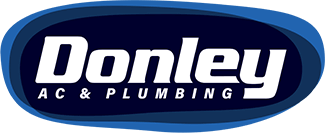Home Heating Systems That Will Save You Money
Date: September 20, 2016
ARTICLES
HOME HEATING SYSTEMS THAT WILL SAVE YOU MONEY
SEP 19, 2016
Winter is coming and that dusty old heater is costing you money. Whether you live in the American southwest and think you turn your heater on a little or live in the cool Northeast and know you turn in on a lot, chances are that your heating bill accounts for the largest portion of your energy bill. In fact, according to Energy.gov, 45% of the average American energy bill is allocated to heating your home. That means you could either be saving a ton or wasting a ton of money if you’re heating unit isn’t up to speed. We’ve got the tips to let you know how you can save on home heating costs and how to improve your home heating options.
HOME HEATING TIPS THAT WILL SAVE YOU MONEY
Before you upgrade your heating system, consider improving the efficiency of your house. You may not need to purchase a new unit or, if in fact, you do, these tips will allow you to purchase a smaller unit, saving you money on the upgrade and operating costs.
UPGRADE WINDOWS
The US Department of Energy reports that an estimated $35 billion of energy costs are lost through windows. If your windows were installed and/or made before 1988 you should consider replacing them. Technological advances have improved the quality of glass and sealants that previously allowed heat to escape and cool air to seep into your warm quarters.
UPGRADE DOORS
The same goes for doors. Doors expand and contract throughout their lifetimes with the changing seasons. Make sure that your door fits properly. If you can see the sunshine through the cracks, then you can guarantee air is leaking out. Likewise, make sure the doors with glass are properly sealed.
CHECK YOUR INSULATION
Home insulation is a fantastic invention. Unlike the pioneers who relied on sap and mud mixtures, we are gifted with synthetic insulation products that help seal in the heat when we need it. “When the upstairs of a home becomes too cold in the winter or too warm in the summer — and the energy bills start climbing — it could mean you need a professional to inspect your insulation, suggests home expert, Tom Moore. Investing in additional insulation, especially for older homes, can pay for itself in a few short years.
THERMOSTAT PEAK HOURS
Installing a programmable thermostat is a great way to save money because you can adjust the temperatures based on your home and away schedule. For example, if you work all day, you can set your thermostat to lower temps until an hour from quitting time when it kicks on and heats to you liking just as you walk in the door. That way you get the comfort you want without the costs you hate. What’s more, most energy companies have peak and non-peak options where energy is more or less expensive than other parts of the day. Ask about changing to an energy-saving time plan and adjust your programmable thermostat accommodate the plan.
UPGRADING YOUR HOME HEATING OPTIONS
If you’re still not saving the money you want with all of these tips in place, it may be time to consider a new home heating option. First, know that the higher a heating system’s efficiency, the higher the cost, but the lower the operating costs, so look for Energy Star products which exceed the minimum standards for efficiency and quality.
Second, be aware of these abbreviations to help understand how efficient your unit is.
AFUE or Annual Fuel Utilization Efficiency measures how efficient furnaces and boilers are at converting fuel to heat.
- Old/low efficient heating systems rate 56-70% AFUE
- Mid-efficiency heating systems rate 80-83% AFUE
- High-efficiency heating systems rate 90-98.5% AFUE
HSPF or Heating Season Performance Factor is used to gauge the heating efficiency based on an algorithm of the square foot space as well as electric energy consumption. The higher the HSPF number, the greater the efficiency and cost-savings.
- Old/low efficient heating systems rate 6.8 HSPF or lower
- Mid-efficiency heating systems rate 7.7 HSPF
- High-efficiency heating systems rate 10 HSPF
In order to select the right unit for your home, we recommend working with your local heating professional. Together you can determine:
- Is your best home heating option a furnace, boiler, or electric unit?
- What size unit do you need?
- Is it better to go with a mid-range unit or a high-efficiency unit?
- Which unit will give you the most bang for your buck?
- Are there any options besides replacing your heating system?
- What else can you do to reduce your heating bill?
We know heating is a living essential, but we also know that you don’t want to give you right arm, left leg, and first born child over in order to keep your house warm and your wallet moth-free. If you’re looking for a heating professional that is as passionate about heating systems as you are about saving money than you need to check out the services we offer at Donley Service Center.



